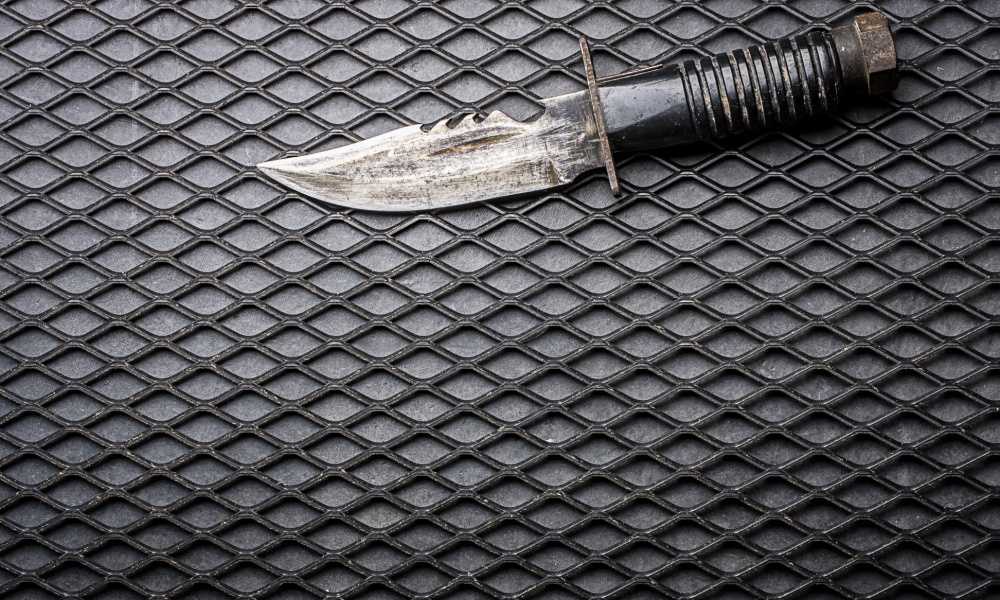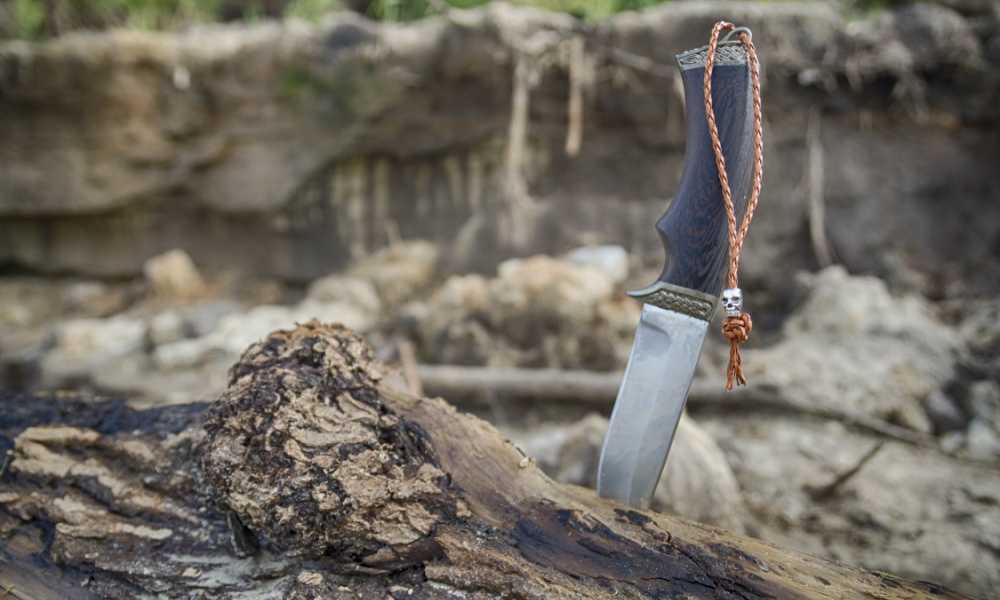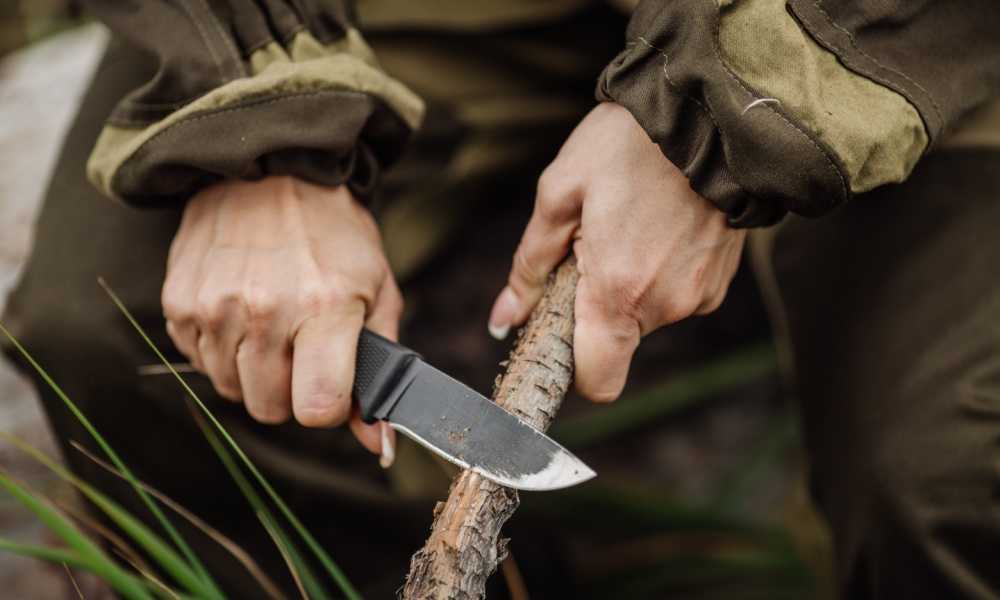Last Updated on October 17, 2022 by admin_hunter
Whether you found an old pocket knife in an old box or if you accidentally left your knife in the rain, the chances are that the knife’s blade has probably rusted.
Unfortunately, rust often makes blades ineffective while also making it look quite unappealing and decreasing its value. But, with a bit of work, you can remove rust from a pocket knife and restore it to a like-new condition.
Why Did My Pocket Knife Rust?
There are three ingredients needed to create rust: air, water, and iron.
If you didn’t know, iron is found in the steel which knife blades are made from. So, when you mix the blade of your knife with water and air, you will get rust. Even if your blade is made from stainless steel, it is not stainproof, only stain resistant.
Stainless steel is made with around 10.5% chromium, and while this is more resistant to rust and corrosion, thanks to its protective layer, it will still rust in certain conditions without a much higher chromium level.
There is one true type of stainless steel which is stainproof, which means that it won’t rust. This steel is called H1 and is often found in Spyderco Salt Series knives. It has just about no carbon and huge amounts of chromium. This means it is highly resistant to rust – in fact, it is just about impossible for these H1 blades to rust.

Materials and Tools to Remove Rust
You can easily remove rust from a pocket knife using regular household items, so start by using what you have available. Remember to always wear protective gloves when cleaning any sharp object and work on a hard, flat surface.
Here are the items you will need:
- Protective gloves
- Wire brush or steel wool
- Citric acid
- Dish soap
- Potato
- Salt
- Lemon
- Baking soda
- Vinegar
How to Remove Rust from a Pocket Knife?
There are a few different methods you can try. If one doesn’t work, simply move on to another one.
Vinegar
To be honest, there is just about nothing the vinegar isn’t able to clean. To remove significant rust from your pocket knife, submerge it in a bowl of vinegar and leave it to sit overnight.
Once your knife has had a great soak, remove it from the vinegar and use a wire brush or steel wool to scrub the rust. If there are any rust spots left, repeat the whole process again and soak the pocket knife longer. When all the rust has been removed, clean it with soap and water. Dry it thoroughly.
Salt and Lemon
This method mixes the abrasiveness of salt with the acidity of lemon to target smaller rust spots. Cover all of the rusty spots with salt and then pour lemon juice onto the salt layer. Allow the salt/lemon mix to sit for around two hours.
Use the lemon rind to scrub your knife’s blade. If there are stubborn spots, use a wire brush or steel wool. Rinse the salt, lemon, and rust from the blade and dry the knife thoroughly.
Baking Soda
If your knife is made from thin metal or it only has light rust spots, then baking soda will work best. Mix baking soda and water together to form a thick paste. Spread this paste onto the rusted parts of the blade, ensuring that they are covered well.
Leave the paste on your knife for about an hour or two. Use a wire brush or steel wool to scrub the knife to remove all the rust. Rinse your knife with water and dry it thoroughly.

Potato and Dish Soap
For relief work or blades that have no detailing, you can use a potato and dish soap to remove the rust. Cut a potato in half and put dish soap on the cut part. Rub this on the part of the knife to rub the rust away. Rinse with water when you are done and dry it well.
Citric Acid
You can find citric acid in the baking aisle in supermarkets or in a health food store. It works well to remove rust, but it can also be used for removing coatings and paint, so use it carefully, and only if you have a thicker blade that has very heavily built up rust. This method should be a last resort.
Preventing Rust
Once you have cleaned your pocket knife and removed all the rust, you need to keep it dry and clean. You should wash and dry your knife immediately after use – do not leave it lying in a sink and definitely do not place your pocket knife in a dishwasher.
Store your knife in a cool, dry, dark area which has little to no humidity. This will prevent the rust issue from happening in the first place.

